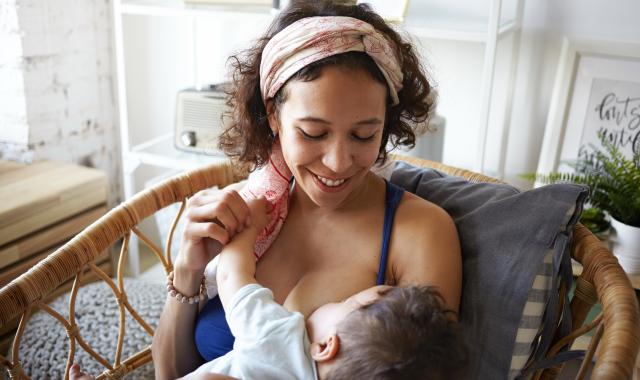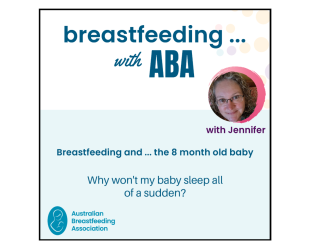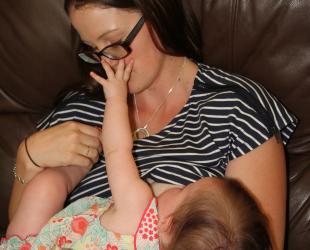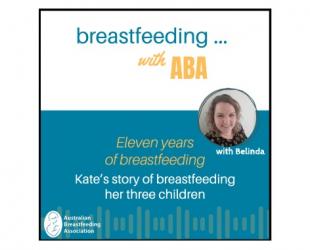Breastfeeding changes as your baby grows. Here’s what to expect and how to respond.

As your baby grows, breastfeeding can look a little different. Older babies often feed more quickly and may be more active or distracted during feeds.
You might notice your baby finishes both breasts faster, but sometimes enjoys longer, relaxed feeds, especially before sleep.
Do older babies still have frequent feeds?
Even as babies get older, they may want to feed more often at certain times, such as when they’re teething, feeling unwell, tired, or seeking comfort. This is normal. Responding to your baby’s needs supports their physical and emotional wellbeing.
Breastfeeding and solids
Breastmilk remains your baby’s main source of nutrition and energy until 12 months. Solids are for exploring new tastes and joining family meals. It doesn’t matter if you offer solids before or after a breastfeed. Just make sure your baby is still having enough breastfeeds. Too many solids at this time may impact your milk supply. Continue to breastfeed your baby as often as they want. If you feel that your baby isn’t as interested, you could try offering fewer solids for a while.
A meal doesn’t have to include both solids and a breastfeed. You can offer them at different times.
Common feeding behaviours
As babies get older they can be distracted during feeds. Many will also find different positions in which to feed and may also become quite active while at the breast.
You may need to find a quiet time and place to help your baby to settle and focus on feeding. Giving your baby something to hold or play with, for example a colourful necklace, can help.
Does my baby still need night feeds?
Night feeds are still important in the second six months. Many babies don’t sleep through the night at six or even twelve months, and waking for feeds is normal. Sleeping close to your baby or co-sleeping can make night feeds easier for some families.
© Australian Breastfeeding Association December 2025

Learn more about your older baby




